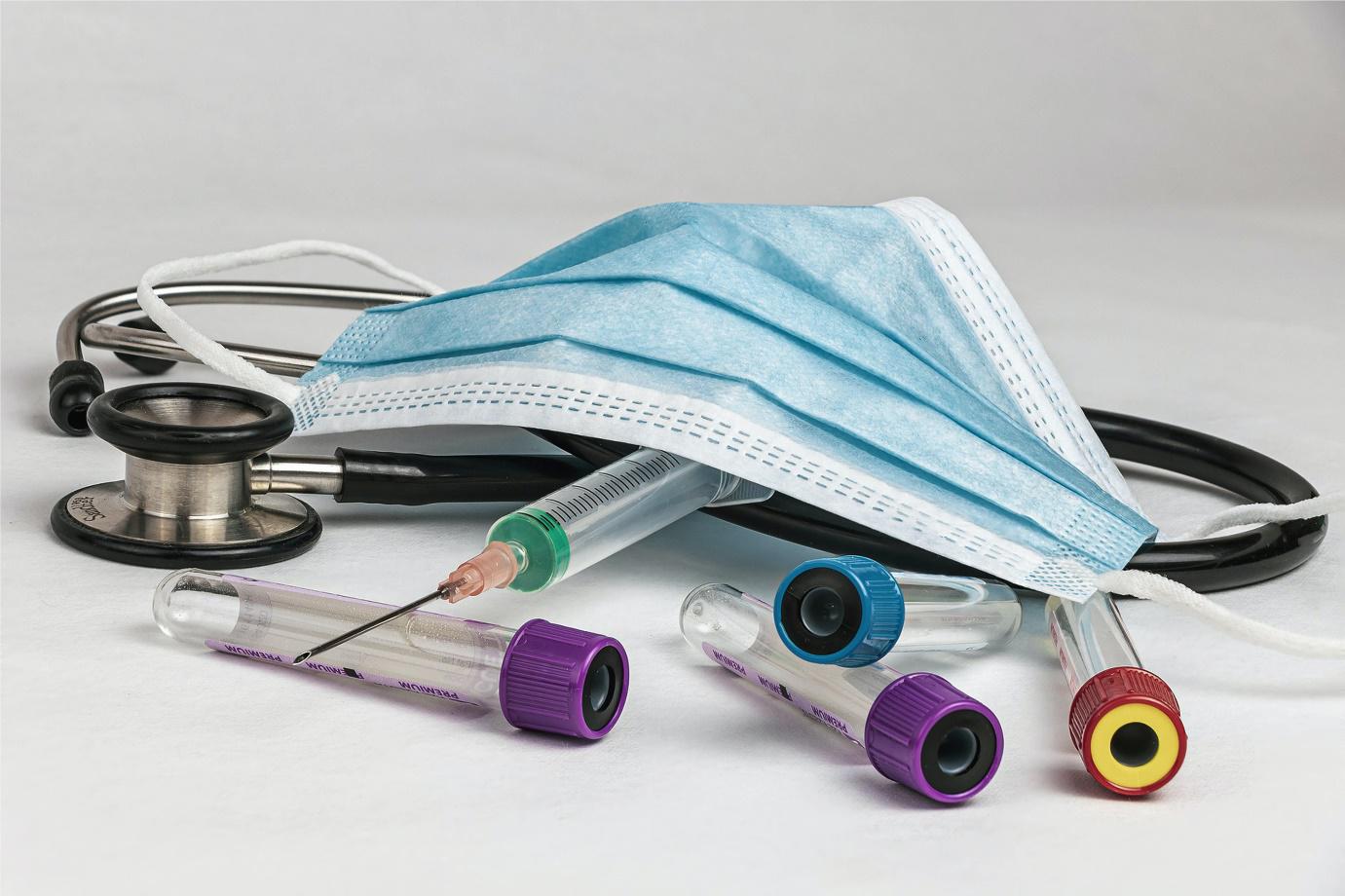The goal of a vaccination
Generally speaking, a vaccination is a harm done in order to prevent something worse. By law, something like this is only allowed, if the result is really worth it – anything else could be considered an assault. A vaccine usually has the goal to confront the body with weakened viruses or bacteria in order for the host to learn from it and to develop immunity against those pathogens. This usually results in the body producing something we call “antibodies”. If a person has enough antibodies against a certain virus, that specific virus won’t be able to spread much further due to the immune system being informed and prepared against it. One of the few things that could pose such a patient at risks would be immunosuppressants like cortisone1.
Do you need a vaccination?
This is an important question! Due to viruses like SARS-CoV2 spreading globally like many well known influenza viruses, most people probably already were in contact with it. If our body manages to fight this pathogen off, antibodies and memory-cells usually remain in our body for a while. This situation could be considered similar to a vaccine – one being an artificial and potential harmful confrontation via injection, the other one coming from everyday exposure to pathogens. The result however is the same. The only difference would be, that vaccines are considered as a somewhat “controlled exposure”.
This could and should be debated further especially regarding the new mRNA-vaccine for SARS-CoV2. Normal trials for novel vaccines take up to 10 or even 20 years until they are being validated as acceptable for the general public. The new vaccine had been released after around 10 MONTHS. Lots of money won’t accelerate these central studies, as many of them need time as an important safety-factor. First, do no harm!
You can’t reduce 9 months of pregnancy to 3 months, just by “putting lots of money into it”.
The question is though, if you would have to vaccinate a person that had been tested positive for antibodies against SARS-CoV2? There would be no need to do so, as the person already worked out an immunity against the pathogen. If someone would want to vaccinate you, while you are able to prove that you have already built up antibodies – what reason is there to do so?
Boosting one’s immune system and “surviving” an influenza-like-virus sounds not only smarter but also way safer than exposing ones long term health to something that works on our genome and already showed side effects worldwide2.
References:
1. Yasir M, Goyal A, Bansal P, Sonthalia S. Corticosteroid adverse effects. In: StatPearls. StatPearls Publishing; 2020.
2. Children’s Health Defense Team. FDA Investigates Allergic Reactions to Pfizer COVID Vaccine After More Healthcare Workers Hospitalized. Childrens Health Defense.




do you have chapters in America, Pacific Northwest, ie. Idaho?
Your explanation is direct and makes a whole lot of sense.
Thank You for your honesty, your devotion and sincerity…
Bless you.
How do you refuse a vaccine in the UK as big pharma, the mainstream media are hellbent on forcing it onto every one . The leader of the opposition Keir Starmer even suggested people should be sectioned if they refuse the vaccine , but refuses to disclose whether he has taken it himself .
The BBC are selling the vaccine all day long on TV . Yet no one is allowed to debate the treatments Professor Cahill advised and the world know work . Clearly they are deliberately following Gates & Fauci,s agenda .
Dr Vernon Coleman has predicted 1.6 million people will be maimed or die from the vaccine from the 60 million UK population . Yet know no one is stopping the genocide unfolding ..
The current vaccines are not really vaccines by law. They do NOT stop the spread of the virus, nor do they prevent the recipient from getting the infection. Instead, they are supposed to, in theory, decrease the adverse effects of having the infection. However, the adverse effects that are currently KNOWN for these vaccines are BAD and can cause death. In my country, hundreds have already died, and thousands are having adverse effects ALREADY. They are EXPERIMENTAL, which means that they do not know what the longer term adverse effects are. The expectation is that any Coronavirus the recipient is exposed to, might cause a deadly reaction in the months to come.
https://www.youtube.com/watch?v=ejbiHWLavjY&t=210s
No vaccination – no supermarket! News found on You Tube – hugo Talks.
can you draft a letter that we all can print out and send to our doctors and our M.PS asking for the evidence ect .?
I will not have this vaccine under any circumstances. I had this “flu” in December 2020. I’m ok. I have many “disabilities” already and have been permanently pigeonholed by society as worthless. I am one that can easily put out on to the streets, permanently one step away from the ” poor house” end for human sheep. I feel powerless and discarded. Only the love of my family keeps me here on planet earth. I must fight for their collective future! So I will “stand” with my whole being and say no!
What a farce! To demand vaccine passports when vaccines are not known to prevent the spreading of COVID? Vaccinated people will get infected, they say, and with no symptoms, but with a passport, they will have a license to PASS the virus on to others without knowing. I do hope governments will be held accountable for the consequences of this ‘safety’ illusion!
I live in Nova Scotia Canada and it has been non-stop bombardment of COVID COVID COVID despite having few “COVID related deaths”. This is a new term in Canada and probably elsewhere to incorrectly increase the numbers or up-coding. Cardiac, influenza, cancer deaths have dropped for the first time while COVID related deaths surprisingly have matched that number. They are even going in inoculate children who don’t even get sick from this coronavirus… with the MRNA no less !!!
nurenberg
Why are you referring to the mRNA third stage experimental trial as a “vaccine”? This is incorrectly spreading the idea that this is not a trial. Nor do you refer to the dangers of this. Delores Cahill likened the injection for the “vaccine trial” as being like giving your body AIDS. This terrible injection destroys people’s immune systems. There is NEVER a good reason for giving yourself AIDS
WFA recently had a major restructuring of their website so please visit Way Back Machine http://web.archive.org/web/20210615000000*/https://worldfreedomalliance.org/
and take a look at how it was up until the update circa 29.4.21. Then let WFA know if you preferred their original version with lots of information from scientists and medical experts and updates from Reiner Fuellmich. Or if you prefer this one with its emphasis on sending forms and letters of protest to the EU and national governments, and its special section on psychology, mental health for those who are WFA members. This website is now also linked to The New Earth Project – it seems very keen on scientific discoveries and new technology and of course its nothing like the New World Order.
On Way Back Machine you will find the WFA President Delores Cahill with two videos one called
“I would Sue For Murder if Someone Forcibly Injected Me with The Vaccine” and
“Why People Will Start Dying a few Months After The First mRNA Vaccinations” amongst many other very informative videos.
I don’t expect this comment to stay on here very long – that is if it gets posted at all. I think when they find out that people can still see the original website they will have a fit.
They have already had one of their psychologists try and chat to me on Telegram about the state of my mental health when I posted on there yesterday that WFA website is being radically altered. But the evidence is there on Way Back Machine and you can see it for yourself.
Dear Tiger Lily. You have the right to say what you want to say. I wonder… what is your point? I work with this site but I do not recall that I had any videos on the site what you just mentioned above… The site is changing as we keep trying to find our way to deliver information and help for those who are seeking for it. But I am sure you will find your way to help others. Anyhow have a nice day! /Robert
Oh its waiting moderation. It will be interesting to know what Melinda Gates decides to do about it. If she suppresses it – it is evidence that I am right. If she doesn’t then it is giving people far too much information for her own good. This of course is Melinda Gates new career in case no one guessed? My next action will be on Twitter. If that account is immediately deleted it is evidence that I am right.